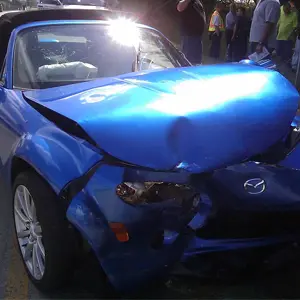The laws surrounding impaired driving can vary quite significantly among different countries around the world. In fact, the United States has looked to other countries in the past to gain insights into many modern-day DUI and DWI practices, such as random breath testing, as well as other common enforcement practices. So how do our DWI / DUI laws compare to those of other countries?
Blood Alcohol Concentration (BAC) Levels
Blood alcohol concentration, often referred to as BAC, is one of the standard metrics used in determining a driver’s level of intoxication. Blood alcohol concentration measures the amount of mass alcohol consumed as a percentage or ratio of an individual's mass of blood.
In the U.S. the illegal blood alcohol concentration level for driving is typically 0.08%, however this is not the standard around the world. For example, in Norway, Denmark, Portugal and Greece, driving with a BAC of 0.05% or higher is considered illegal. In other countries, such as Sweden, illegal BAC limits are even lower at 0.02%. Furthermore, Brazil and Russia have a “zero tolerance” policy which means that any blood alcohol concentration is considered illegal while driving a vehicle.
Sanctions For Intoxicated Driving
In addition to differing BAC limits, sanctions for impaired driving offenses can range widely among country to country. While the specific details may be different, common types of sanctions for those charged with DWI and DUI in many countries (including the U.S.) are license suspension, monetary fines and jail time. In the U.S., the penalties for DUI offenders often vary by state, however many first time offenders can lose their license for a few months, pay fines and could face jail time.
Stricter DWI / DUI Penalties
While the examples mentioned above might be considered standard penalties for infractions in the U.S. and many other nations, some countries handle things a bit differently. For example, in Saudi Arabia, where consumption of alcohol is illegal, penalties for intoxicated driving are typically upwards of $10,000 and up to 10 years in prison. In Russia, it is not uncommon for those arrested on DWI charges to have their licenses permanently revoked after a first-time offense. In Sweden, where the illegal BAC limit is 0.02%, drunk drivers can receive monetary fines based on their level of income at the time of the offense.
Particularly Interesting DWI Penalties
Some countries have penalties that one might consider quite interesting when compared to standard sanctions in the United States.
Apparently in certain towns in Turkey, where the BAC limit is 0.05%, impaired drivers are taken 20 miles away from the town or city where they were driving by the police. They are then dropped off and forced to walk back under the supervision of officers.
In Malaysia, receiving jail time for a DWI is not limited to only those who are arrested for intoxicated driving. In fact, in Malaysia the spouse of a person arrested for intoxicated driving can also go to jail, even if he or she was not present at the time of the incident.
In France, it is a law that all drivers must keep a breathalyzer kit in the car while driving. While it is technically illegal to drive in France without a breathalyzer, there is no fine or other means of enforcing the law.
In Japan, any passenger riding in the car with someone who is arrested for drunk driving can be arrested too, regardless of whether or not that person is intoxicated.
As you can see, the laws and penalties surrounding intoxicated driving can be quite different around the world. Next time you are traveling to another country make sure to check up on the current laws!



